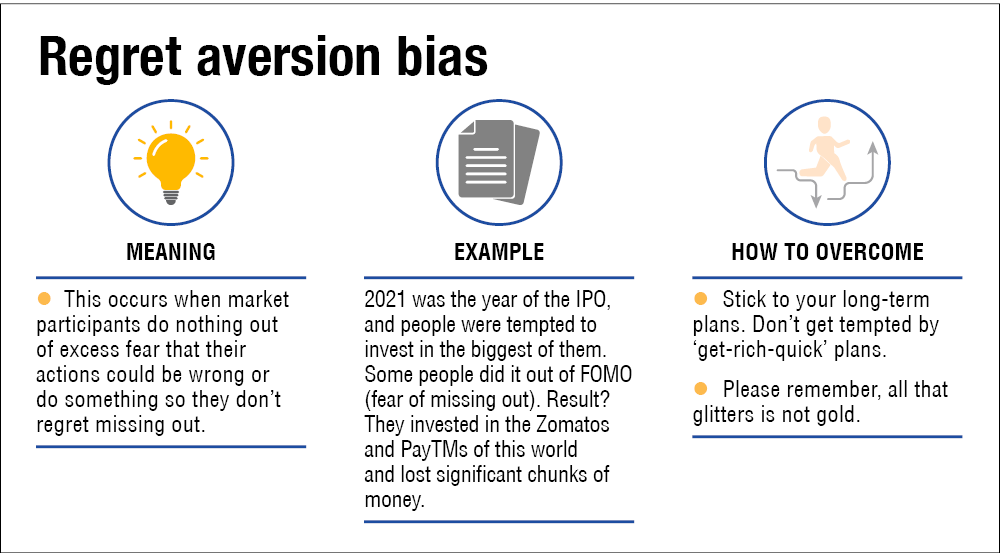Regret aversion is a cognitive bias in decision-making that occurs when individuals choose options that minimize the potential for experiencing regret, even if those choices are not optimal in terms of expected value or outcomes. In other words, people often avoid making decisions that they fear will lead to future regret, which can sometimes lead to suboptimal choices.
Explanations:
Regret aversion is driven by the emotional discomfort people associate with the feeling of regret. To avoid this negative emotion, individuals may choose the safer or more familiar option, even if it means missing out on potentially better outcomes.
Examples:
Career Choices: Someone may choose a stable but unfulfilling job over a riskier but more rewarding career path because they fear regretting the latter if it doesn’t work out.
Investment Decisions: An investor may opt for conservative, low-yield investments to avoid the regret of losing money in a more aggressive but potentially more profitable investment.
Relationships: People may stay in unfulfilling or unhealthy relationships due to the fear of regret that comes with ending them.
Solutions:
Objective Decision-Making: Strive to make decisions based on objective analysis and expected value rather than solely on the desire to avoid regret.
Accepting Uncertainty: Understand that all decisions involve some level of uncertainty, and regret is a natural part of life. Accept that you cannot predict every outcome.
Learning from Regret: Embrace regret as an opportunity for learning and personal growth. Reflect on past regrets to make better decisions in the future.
Seek Professional Advice: Consult with experts or seek advice from mentors or advisors when making significant decisions to gain confidence in your choices.
Addressing regret aversion involves finding a balance between avoiding unnecessary risks and making choices that align with your long-term goals and values. Recognizing the potential for regret can lead to more informed and rational decision-making.
